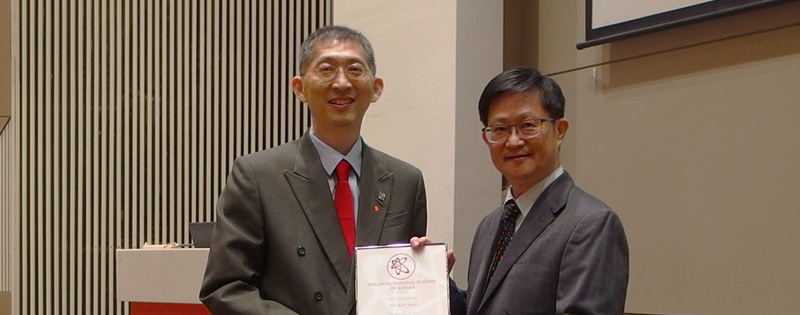Headphones and written instructions help him focus at work
Headphones and written instructions help him focus at work
06 Sep 2022

Straits Times, 6 Sep 2022, Headphones and written instructions help him focus at work
Mr Yeoh Jan Wai, 24, excels at taking notes at work.
During conference calls on new projects, his colleagues at consumer goods giant Procter & Gamble (P&G) convey briefs to him in as much detail as possible, which he writes on his laptop.
The supply network operations analyst at P&G prefers referring to written notes, rather than verbal instructions, on account of his autism.
“I relate better to something visual. I may miss out certain points with aural instructions,” says Mr Yeoh, who specialises in data management and analysis.
The bachelor has other strategies for dealing with a neurotypical environment.
Increased sensory sensitivity is common among autistic people. He puts on headphones and listens to soothing music when he hears loud voices or a faraway car horn. To enhance his focus, he switches off pop-up notifications of new e-mail.
He identifies with the autistic protagonist in the hit K-drama Extraordinary Attorney Woo, which ended its 16-episode run recently.
The titular lawyer’s favourite food is gimbap, or seaweed rice rolls, because she can see all the ingredients and will not be surprised by unexpected flavours.
Mr Yeoh still recoils at a childhood memory of biting into an omelette containing prawn, an ingredient he dislikes.
“I’m just like her. I need to see what I am eating before I make a decision about it. I realised then that I shouldn’t judge things by how they look.”
After graduating from the Singapore University of Technology and Design with a bachelor’s degree in engineering systems and design in 2019, he found it difficult to get a job after sending out many applications. He wonders whether it was because of his lack of work experience or because he told potential employers he was autistic.
He says: “I chose to declare my condition because I felt the need to be honest with the company should it hire or assess me, so it can be mentally ready to support me more so I can perform on the job.”
He eventually found work as a cyber-security consultant before moving to his current position in September last year, which he got through a training and employment partnership targeted at autistic adults between his company and the non-profit Autism Resource Centre (Singapore).
Although he was diagnosed at the age of five, he did not know what autism meant until he was about 13. In his teens and early 20s, he went through a dark period when he doubted if he had any career prospects.
He drew on the long-standing support of family and friends.
Mr Yeoh says: “Even as a child, I remember my mum kept saying that I have a special talent, but I didn’t know what it was.”
He now views some aspects of autism as a strength at work: “People with autism tend to be very detail-oriented. They have perseverance and spend a lot of time trying to correct any imperfections.”
